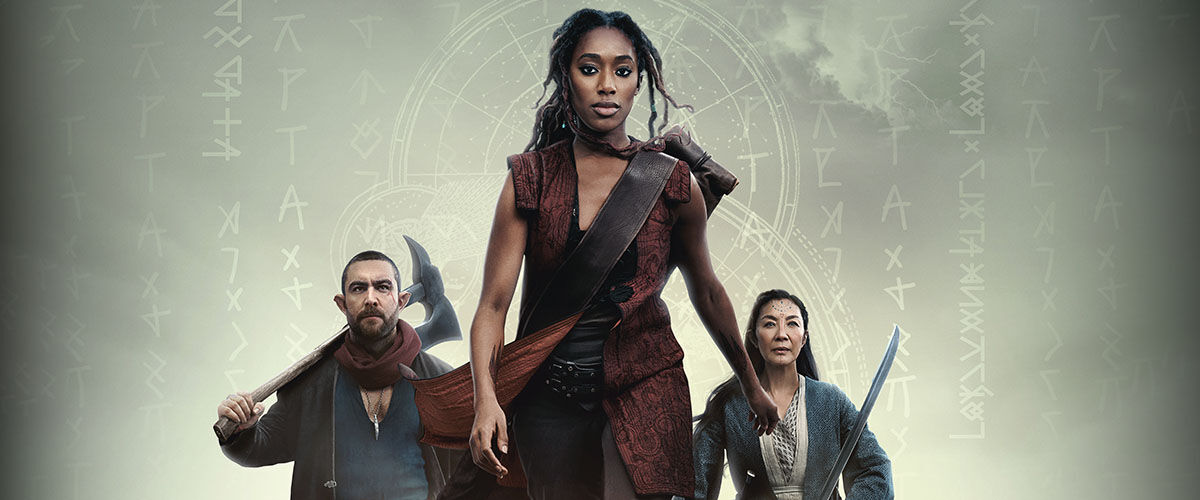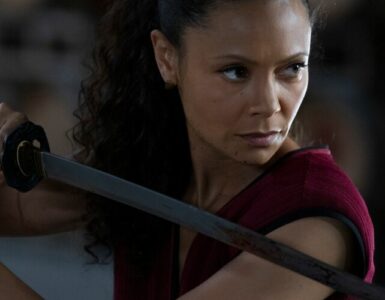- Shares
- 304
If you were wondering about how a Henry Cavill-less Witcher universe would be like, look no further than spin-off series The Witcher: Blood Origin, Netflix’s passionless mess of series that serves little purpose.
The new four-episode prequel series takes place more than 1,000 years before the events of the hit series, The Witcher, which itself is an adaptation of a popular Polish series of novels about Geralt of Rivia (Cavill). The oddity of the series isn’t that the Superman actor isn’t in it, but that the writing, acting and even visual effects are horribly bad.
The Witcher: Blood Origin focuses on the creation of the first Witcher, and sees a time where elves are the dominant force in the world. Dwarves existed, sure, but the elves reigned supreme in this world free of humans and monsters.
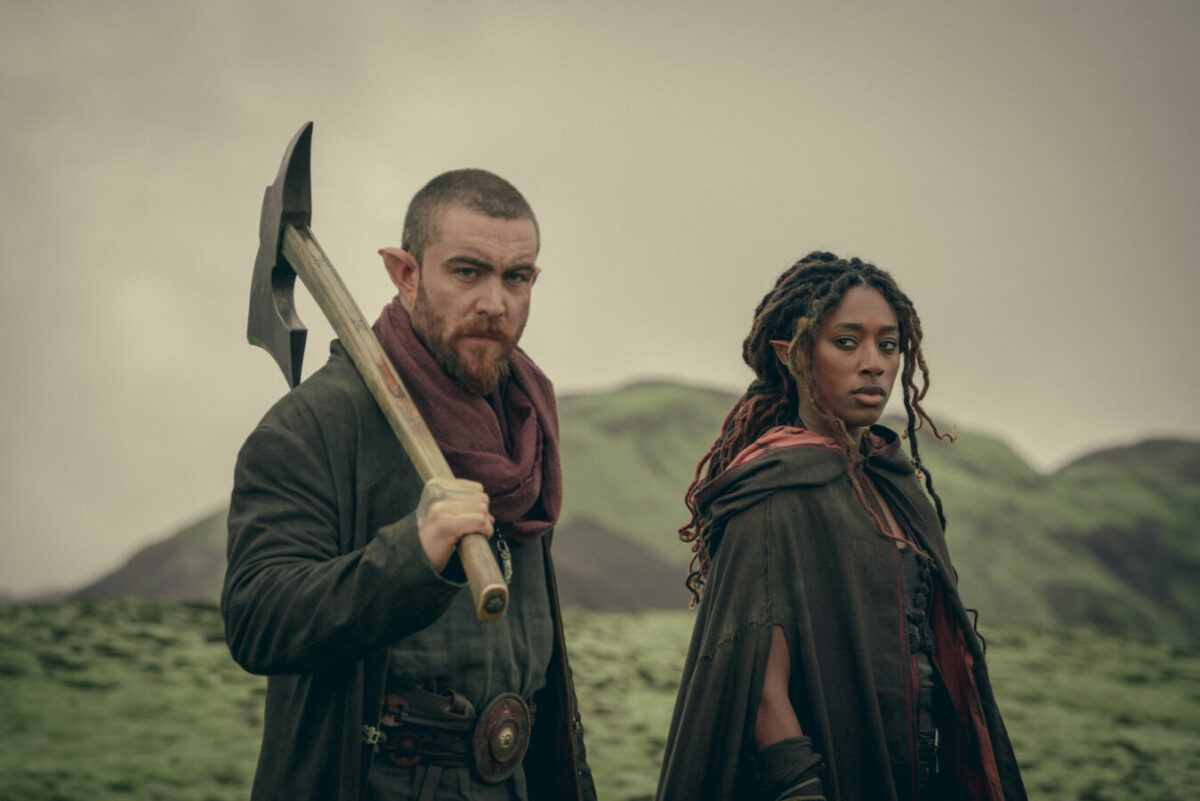
In the current realm, elven kingdoms and clans are at war with each other but the arrival of one vicious dictatorship to rule them all results in the creation of an unlikely group of rebels.
A soldier turned travelling bard Éile (Sophia Brown) becomes the voice of revolution and solidarity, singing rousing folk songs in pubs and using her incredible stabbing skills to put away enemies and drunk punters. Fjall (Laurence O’Fuarain) is a sinewy and sarcastic hulk-with-a-heart whose love for the Empress Merwyn (Mirren Mack) has turned to hate. He crosses paths with Éile and despite their differences, the pair created a blood oath to kill Merwyn.
Then comes Scian (Michelle Yeoh), the last of her tribe. She joins the pair to Xin’trea to reclaim a sword that was stolen from her clan by Merwyn’s father during his time as King. The group of rebels grow bigger and bigger as they make their journey to Xin’trea and plot ways in which they’ll take down Merwyn. They are joined by Syndril (Zach Wyatt) – the man whose knowledge and magic is what gave Merwyn and her compatriots Bailor (Lenny Henry) and Eredin (Jacob Collin-Levy) the power they needed to enforce the dictatorship – and his celestial twin Zacare (Lizzie Annis). The celestial twins are the brains and magic needed to put a stop to Merwyn whilst Éile, Fjall and Scian are the brawns.
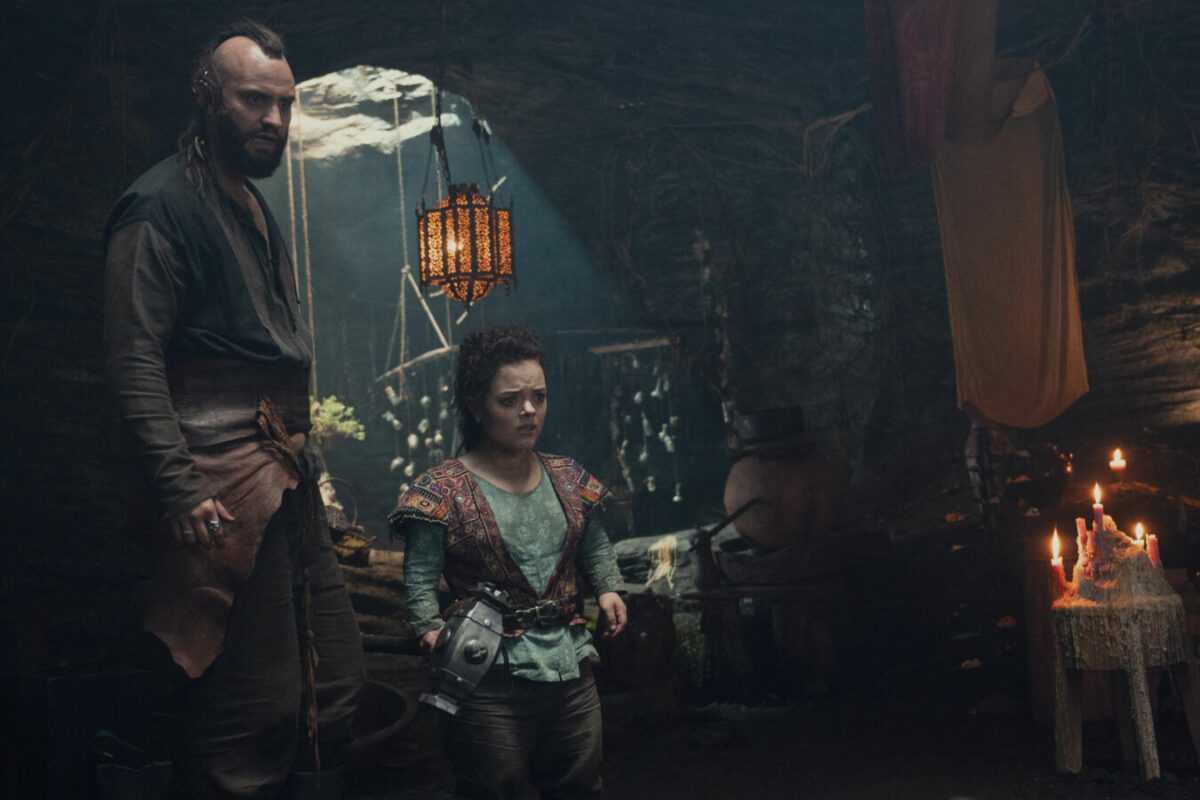
Adding to the rebels’ brawns is a lesbain dwarf called Meledof (Francesca Mills) who is mean with a hammer she lovingly named after her dead lover Gwen and Zacare’s lover aptly called Brother Death (Huw Novelli). And that’s just the main characters of this ensemble-filled limited series.
The problem with introducing so many characters in four short episodes is that things get whittled down and instead of building things up naturally, the series starts off with a narrator (more on her later) who is basically retelling the story via a voiceover, and audiences catch snippets of what transpired aeons ago.
There are plenty of characters here, each with a unique backstory of their own, but the show doesn’t provide an opportunity to get to know the characters a little better. We know a bit about them via the little conversations they have with each other or via the show’s narrator but seeing how they’re new characters, there is no audience attachment to them or their stories. If The Witcher: Blood Origin had twice the amount of episodes, it would’ve given viewers some allowance to get familiar with the characters before sending them into battle, and for some, death.
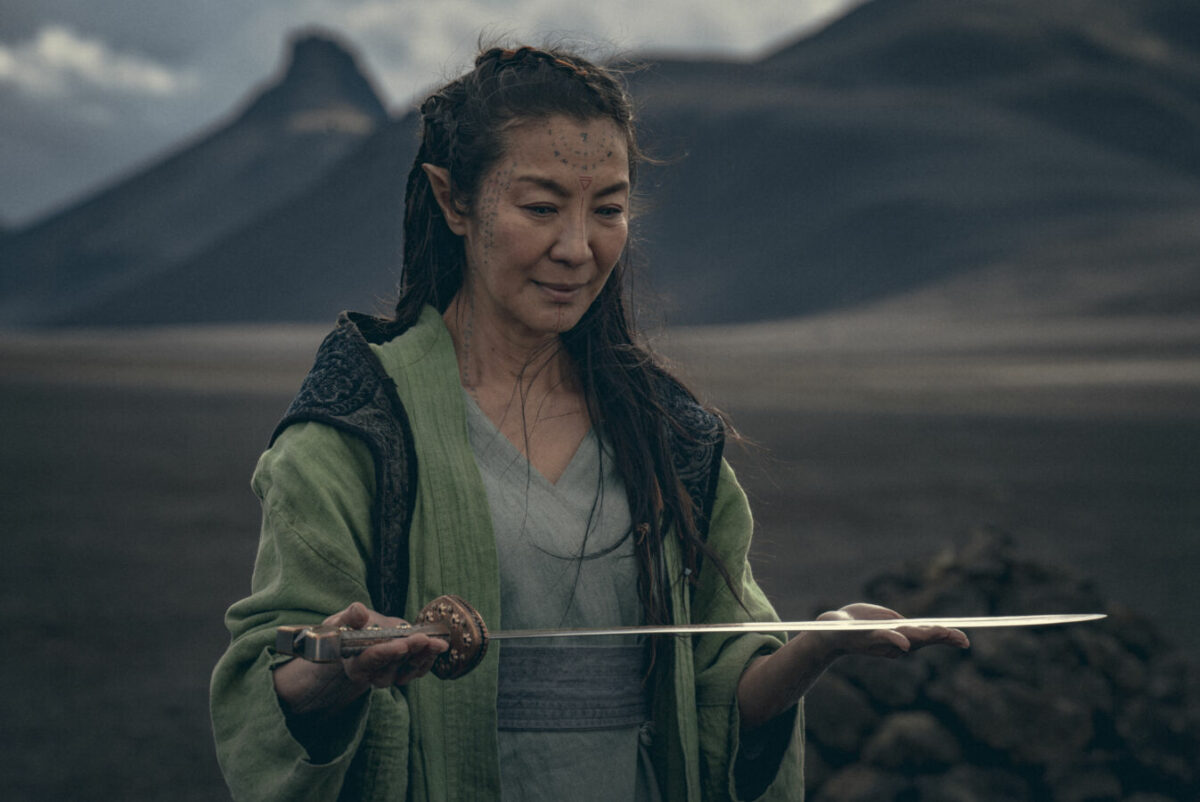
That said, these characters are quite likeable. Brown’s Éile is badass and kind-hearted, she’s everything you want and need from a main character as she’s someone you either aspire to be, are inspired by or would root for throughout the entire series. Yeoh’s Scian took us on a surprising ride – especially with that plot twist in episode three – but the wise and brilliant swordswoman is respectable and easily adored, much like actress Yeoh herself. Our favourites though were Meledof and Brother Death who after their first meet, form an unlikely friendship. An angry lesbian dwarf and a reformed killing machine of an elf who’s been softened by the touch of love fighting side by side, bantering at any opportunity and softly exchanging sweet stories to each other when away from the crowd’s eye.
Unfortunately, the other main character Fjall leaves much to be desired. For starters, he’s no Geralt or Cavill but even if one were to remain objective, O’Fuarain’s Fjall is too detached from his emotions that in moments where he is supposed to be emotional, it comes off rather flat or forced.
Just like the The Witcher, this spin-off has pacing issues. It is unforgivably slow and only picks up at action scenes – most of which were reserved in the last episode. Where The Witcher makes up for its poor pacing with some of the scariest monsters you’ve ever seen and violent slayings, The Witcher: Blood Origin lacks even that, as monsters look like they were designed and rendered by fresh graduates.
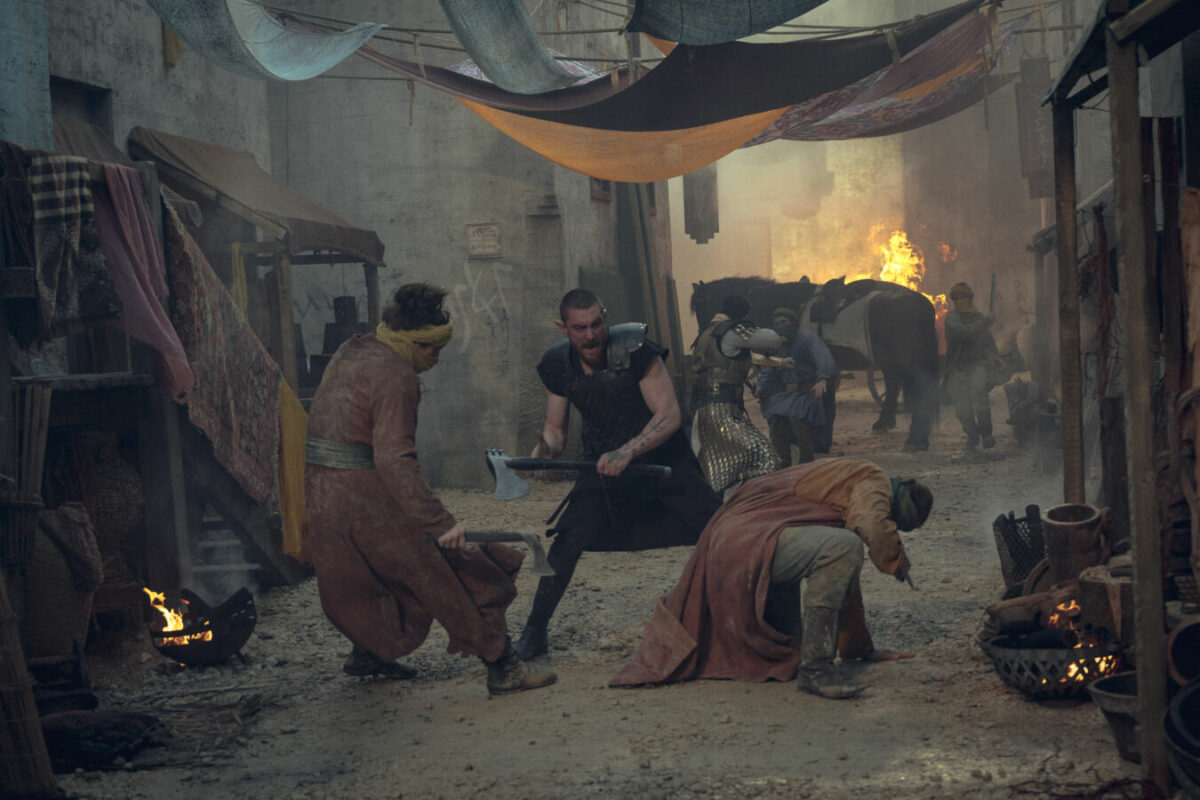
We saw the Pale Widow make its on-screen debut from the The Witcher 3 game but our heroes didn’t even kill it! It was fate, or rather the closing of a portal that decapitated the giant centipede as our heroes ran for safety. Balor’s Beast was teased in the earlier episode and was slain in the show’s finale, but it didn’t even look scary. It was just…big. We love The Witcher because it gave us new monsters to be killed in every episode and The Witcher: Blood Origin failed to deliver that.
Given the short runtime, The Witcher: Blood Origin chooses to tell the tale of its epic adventure through a narrator, The Seanchai (Minnie Driver). Granted, it is a smart way to tell a story that’s on crunch time, but some parts felt like the show over-relied on the narrator. Maybe we’re being nitpicky here but there are some narrations that were unnecessary and quite frankly, annoying. “And then there were three,” Seanchai would say after Scian joins Éile and Fjall in their fight. When the next character joins the team, Seanchai would add “and then there were *insert number here*.” We know, Seanchai, we can do kindergarten maths!
After a while, you even get the sense that they filmed all this footage for the series, but didn’t have a narrative column for the series to fall back on, so they simply strung together the fight sequences, and opted to have a voiceover to propel the story along. Even Yeoh, who has been wonderful in everything she’s appeared in, cannot save this mess of a series that is based on an emerging franchise that no longer has its leading man in Cavill, as the upcoming Season 3 of The Witcher will be his last.
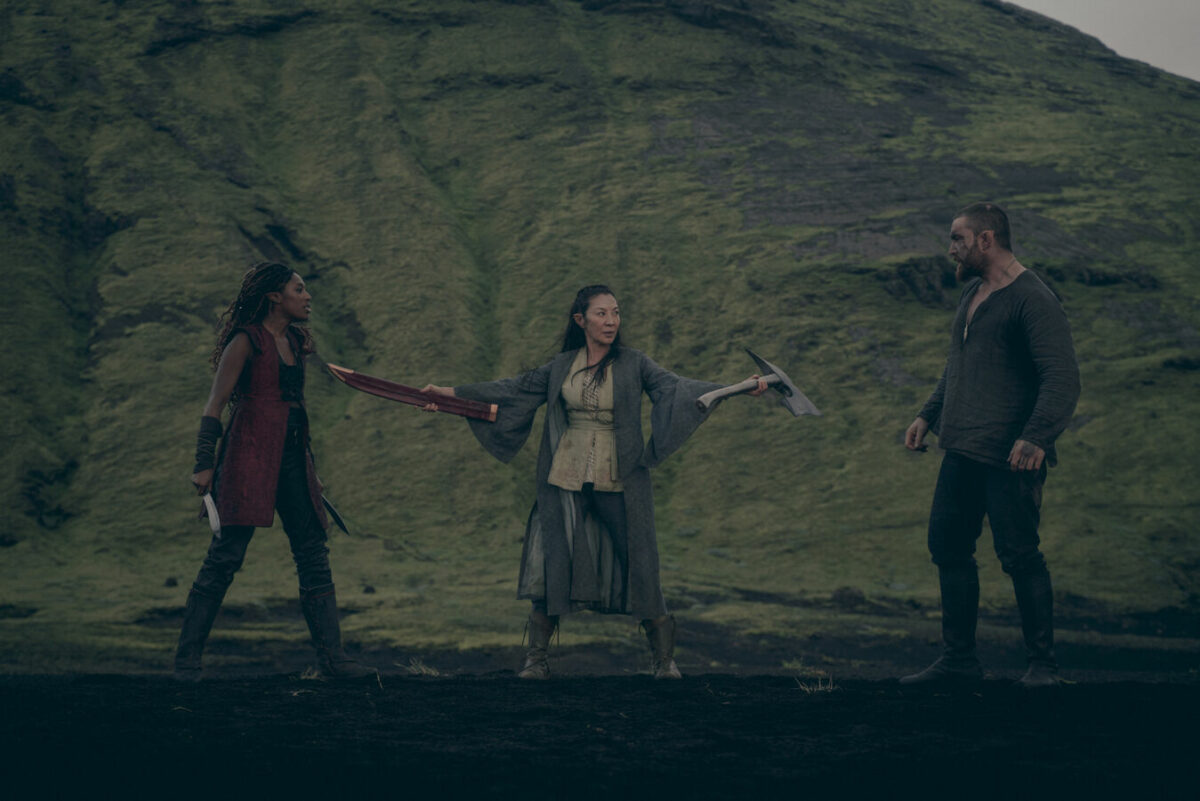
As stories go, the only thing that really matters is in the final episode. Although stopping Empress Merwyn, Bailor and Erendin were the main storyline of the series, the result of their dictatorship finally explains how the Conjunction of the Spheres happened and how humans and monsters started being part of the Elven word. What happens next, as we know it, is explored in the The Witcher series.
The final few moments of the show brings us back to the current timeline to reveal who Ciri (Freya Allan) actually saw in the first episode of season one and teased the Wild Hunt – something fans have been dying to see and are hoping will be explored in the upcoming third season of The Witcher. Aside from that, the only connection we have to the original show is a cop-out cameo from Joey Batey, who plays Jaskier, in the first and last episodes, to simply bookend the series.
In all, if you’re going into The Witcher: Blood Origin thirsty for lore, easter eggs and insight into what you can expect in the upcoming seasons of The Witcher, you would be greatly disappointed. As much as it is a prequel series, The Witcher: Blood Origin could pretty much exist on its own, albeit a rather weak one. The series doesn’t feel Witcher-y enough, especially since it lacked lore and monsters of which are, as mentioned previously, key elements in making The Witcher franchise enjoyable for its fans – the same rules apply for the Netflix series, video games and books too. The Witcher: Blood Origin will perhaps be enjoyed by casual fantasy viewers and fans of Yeoh but aside from that, the only thing this series has slain is our hope and excitement for The Witcher seasons three and four.
The Witcher: Blood Origin is now streaming on Netflix.
GEEK REVIEW SCORE
Summary
The Witcher: Blood Origin features a talented cast and a wide range of interesting characters but lacks the epic monster-slaying and lore that fans of the original series love it for. Simply put, it doesn’t feel Witcher-y enough, we’re so sorry Queen Michelle Yeoh.
Overall
4.5/10-
Story - 5/10
5/10
-
Direction - 4/10
4/10
-
Characterisation - 5/10
5/10
-
Geek Satisfaction - 4/10
4/10

